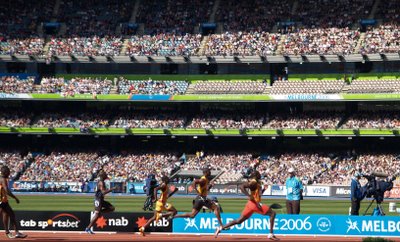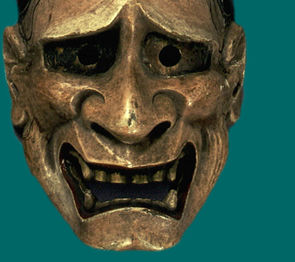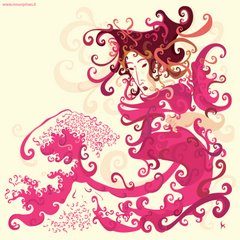Complete the Writing Task and Katakana Task over the following 3 weeks. This work will be important preparation for next term. Remember to take home your textbooks as reference.
Writing Task
Using the げんこうようし provided, write a personal account about an incident that occurred during the holidays. Choose a particular incident, do not just write generally about your holiday.
Try to give details about the incident and be sure to express your feelings in relation to the incident. Use your imagination to make your account interesting. It can be completely fictional or you may like to embroider the truth to make it more interesting. However it should use language related to the theme of Personal World.Register: です / ます form
Length: 250 to 300 字
Please write よこがき (horizontally)________________________________________________________________________
Note:
1. Do use all known kanji and check how to write them accurately. (Pages 1 – 18 from the Kanji workbook).
2. Do not use unknown kanji unless you are confident you can write them accurately. Remember dictionaries use type written form which can vary from hand written form.
3. If you do use new kanji then provide the furigana reading above
4. If using new words in hiragana from the dictionary, take care to write them accurately and write the English meaning above. Often there are several meanings for the one word, and if your sentence is very general, it is often difficult to decide which meaning you intended.
5. You should not use more than 2 or 3 new words from a dictionary; if you use too many new words you run the risk of not communicating effectively as you may choose the wrong word for the context or you may not use the new words grammatically. (You have to check if words are nouns, verbs or adjectives and then apply the appropriate grammatical structures!)
6. Do use vocabulary lists provided in class for help. The best students always write creatively using the language and sentence structures with which they are familiar.
7. Forget the English sentence order. Think Japanese sentence order e.g. time first, verb last.
8. When giving reason sentences, think carefully which is the reason and put that first; in English we often put the reason after the consequence so take time to think it through.
Reason から consequence
e.g. Dad is bad at golf because he doesn’t practise.
れんしゅうをしないですから、父 は ゴルフが下手 です。
Unit 1 Term 1 Grammar to use in your writingNote: Black and Red denotes the relevant text to consult
Verb plainために –in order to Black p63
plain formと思います - think that------ Black p90
plain formと言います (と言っていますfor the 3rd person) - says that------ Black p90
てから after doing (sequential activities) Red p60
plain form / polite formから because Black p72
plain form / polite form が - but Black p76
Verb stemながら –while doing (simultaneous actions by same person) Black p75
Verb stemたいですwant to do Red p102Verb stemたくないですdon’t want to do Red p102plain pastことがあります have done / have experienced doing Black p 56
plain present ことができます - can do------- Black p 52
Verb stemに行きますto go to a place to do Black p144
て-----て------ and ( used for joining verbs. Activities must be in order mentioned)
たり------たり-----します / しました to do activities in no particular order Black p39
plain formと – when/if/whenever (the part of the sentence after とmust be a consequence of the first part of the sentence) Black p 74
になります -become / get Black p71
Plain presentようになります to start to (changed condition) Black p71
Verb stemすぎます to do something too much
てもいいです It’s ok to / I’m allowed to Black p.139
てはいけませんIt’s not ok to / You must not / You’re not allowed to Black p139
maker) Black p109
かかります to take (time) to cost (money) Black p 89
________________________________________________________________________
Other useful language elements:
Counters Red p75, 76
Particles Red pp33 – 36
Conjunctions Red pp28 - 30
Dates Black p19
Time expressions and Frequency expressions Black pp 172 & 173
Conjugation of adjectives Black p29
Joining adjectives Black p 35
Common katakana words Black p67
Plain present verbs Black p 51
Plain past verbs Black p 56
Negative plain forms of verbs and adjectives Black pp 91 &92
Summary of verb form conjugations Black p166
Katakana Task
The following are all place names in Australia. What are they?
States
ビクトリア クィーンズランド
西オーストラリア ニューサウスウェルズ
ノーザンテリトリー 南オーストラリア
Cities
アデレード アリススプリングス
エアーズロック キャンベラ
ケアンズ ゴールドコースト
サーファーズパラダイス シドニー
ダーウィン パース
ブリスベン ブルーム
ホバート メルボルン
Victorian Sightseeing Spots
エチューカ グランピオン
グレートオーシャンロード ジロング
スワンヒル ソブリンヒル
バララット ヒールズビル
フィリップ島orアイランド ベンディゴ
ホーシャム ミルジューラ
レイクエントランス
Melbourne Suburbs
アスコットヴェール アマデール
アルトナ ウィリアムズタウン
エセンドン エルウッド
オークリー カールトン
カンタベリー キャンバウェル
キュー キーロ
クレイトン グレンアイリス
グレンウェバリー グレンハントリー
コーフィールド コリンウッド
サウスメルボルン サウスヤラ
サンドリンガム スプリンングヴェール
セントキルダ ソレント
ダンディノン チャッドストン
トゥーラック ドンカスター
ノースコット ハンプトン
バーウッド パッケナム
ビーコンズフィールド フィッツロイ
フッツクレイ フランクストン
フレミントン ブライトン
ブラックバーン ブランズウィック
ブロードメドーズ プラーン
ベイズウォーター ベルグレイブ
ホーソン ボックスヒル
ボーモリス ボーウィン
ポートメルボルン ムーラビン
メルトン メントーン
モールヴォン リッチモンド
リリーデール レズヴォア
ローズバッド







